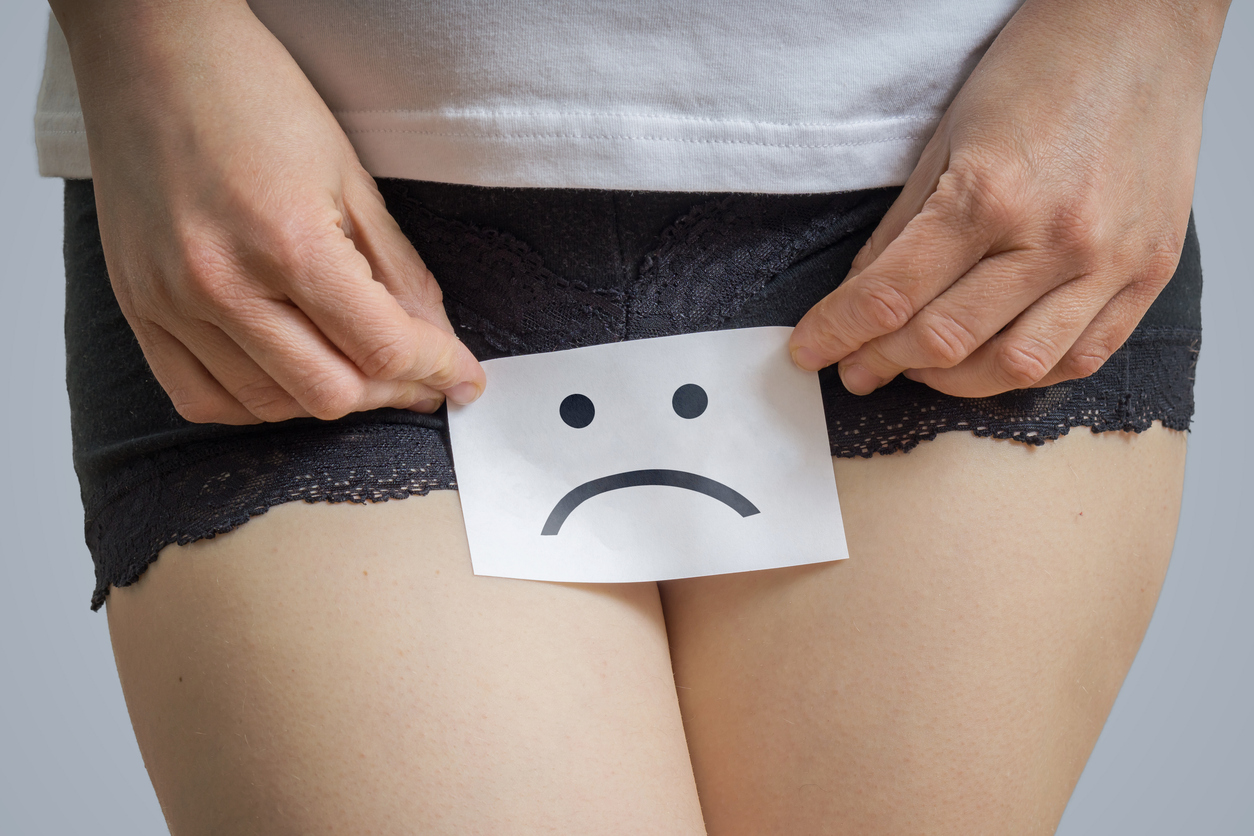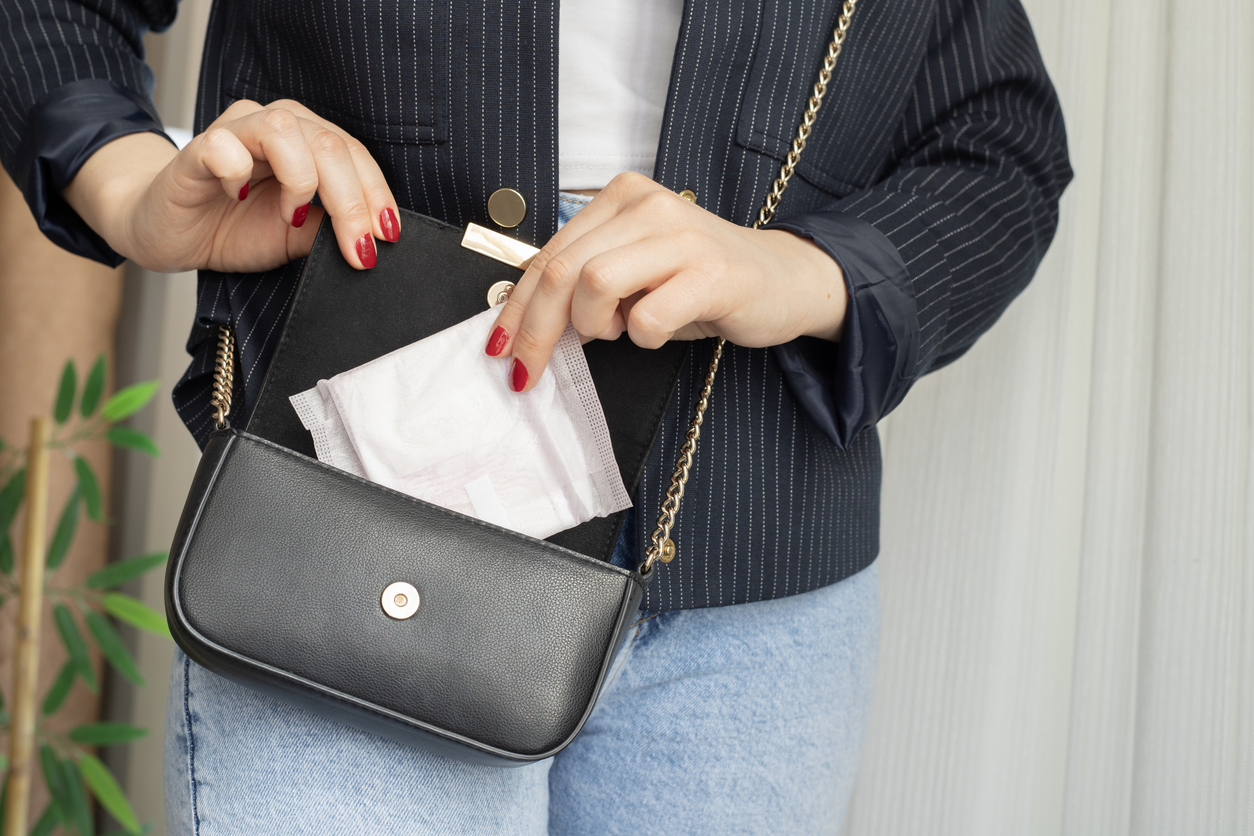There’s a moment — maybe standing up too fast, changing a pad, or just existing—when you catch a whiff of something… earthy? Metallic? A little funky? And suddenly your brain goes: Wait, is that me?!
First off: you’re not gross. You’re not alone. And no, you’re not broken.
Period blood has a smell. That’s totally normal. Most of the time, it’s nothing to worry about. But if you’ve ever wondered why it smells the way it does, what’s “normal,” and when it’s time to check in with a doctor — we’ve got you covered.

Why is my period blood smelling bad?
Period blood isn’t just blood. It’s a mix of blood, vaginal fluids, uterine tissue, and mucus. All that exiting your body and coming into contact with air? Yeah — it’s going to have a scent.
Here’s what can influence that scent:
- Natural bacteria: The vagina has its own ecosystem (called the vaginal microbiome), full of good bacteria — mainly lactobacilli — that helps keep things balanced. During your period, blood mixes with these bacteria, and as it breaks down, it can create a mild odor. Usually, it’s metallic (thanks, iron) or musky. If your vaginal pH is off or your good bacteria are outnumbered, that smell might get stronger or shift.
- Oxidation: When blood hits oxygen (like when it sits on a pad or tampon), it oxidizes. That’s a normal chemical reaction — but it can make things smell a little more intense, especially if you’ve had a pad on for a while.
- Food and hydration: What you eat can affect how your period smells. Foods like garlic, onions, red meat, and strong spices may influence your body odor, including down there. Not drinking enough water can also make bodily fluids more concentrated — and yes, smellier.
- Hormones: Because it seems like it’s always hormones. Estrogen and progesterone rise and fall during your cycle. These hormonal shifts can mess with your body’s natural scent, just like they affect discharge, mood, and cravings.
- Hygiene: Let’s be clear: the vagina is self-cleaning, but the vulva (the external bits) needs a little help. Not changing pads or tampons often enough? Not rinsing off during your period? That can create more odor. But please — no scented soaps, douches, or feminine sprays. They mess up your pH and make things worse.
- Infection (sometimes): If the smell is really strong (think: fishy, rotten, or just off) and you also have itching, burning, or weird discharge — go see a doctor. It could be a sign of bacterial vaginosis, a yeast infection, or an STI. All common, all treatable.

Can other people smell my period blood?
This one haunts a lot of us — especially in public, or when getting close to someone. But here’s the truth: Probably not.
Unless someone’s got their nose right up in your business, they’re not going to smell your period. Most of the time, you’re hyper-aware of your own scent because you’re in close contact with it. Other people? Not so much. Unless you’ve had a pad on for way too long.
Menstrual product tech has come a long way. Pads, tampons, and cups are designed to trap or contain odor, so chances are, whatever you’re using during your period, it’s got your back.
Your own nose also gets desensitized over time (called olfactory fatigue), which can make you think the smell is stronger than it is.
So if you're worried your coworkers or friends can smell your period, don’t worry. You're fine.
What does a “normal” period smell like?
Everyone’s different, but some of the common “normal” period scents include:
- Metallic — Like pennies. Super common because blood contains iron.
- Musky — Earthy, like body odor. Normal and natural.
- Sweet or tangy — Especially at the start or end of a period, when flow is lighter.
- Slightly funky — Especially after blood has sat in a pad for a while. Still normal.
It’s only when it shifts to fishy, rotten, or pungently sour that you should call your OB-GYN. Anything foul smelling is worth talking about with your doctor.

Things that can make period odor worse
There are a few things that can crank up the odor factor during your period — and most of them are totally avoidable.
Leaving a pad or tampon in too long is a big one, since blood sitting in a warm, moist environment gives bacteria plenty of time to do their thing (and not in a cute way). Accidentally forgetting a tampon? It happens — but it can lead to a strong, unpleasant smell and should be removed ASAP.
High stress can also throw your hormones out of whack, which messes with the good bacteria in your vagina and can shift your natural scent. Antibiotics might do the same, since they can wipe out helpful bacteria and disrupt your pH balance.
Wearing tight or synthetic underwear traps heat and moisture, giving bacteria the perfect conditions to multiply. And while scented pads or tampons might seem like a good idea, they can actually irritate your vulva and make things worse — your vagina doesn't need perfume, just a little care.

Quick tips to keep things fresh
If you’re looking to keep things feeling (and smelling) fresh during your period, a few simple habits can go a long way:
- Stay hydrated: Helps dilute all body fluids, including period blood.
- Wash the vulva (not inside — the vagina): Use warm water and a gentle, unscented cleanser.
- Change period products regularly: Every 4–6 hours is ideal, more often if your flow is heavy.
- Eat a fresh, well-balanced diet: Veggies, fruits, whole grains. Go easy on strong-smelling foods.
- Wear breathable underwear: Cotton is your friend.
- Manage stress: Deep breaths, yoga, journaling — whatever helps regulate those hormones.
When to speak to a healthcare professional
While most period smells are totally normal, there are times when it’s smart to check in with a healthcare professional. If the odor suddenly becomes much stronger, fishy, or just feels off — especially if it’s paired with itching, burning, unusual discharge, or pelvic discomfort — it could be a sign of something like bacterial vaginosis, a yeast infection, or even a forgotten tampon (which can cause a very strong, unpleasant smell). You might also notice a change in color or texture, like greyish discharge or spotting between periods.
If any of that sounds familiar, don’t wait. It’s not “gross” or “TMI” — your health matters, and doctors have seen it all.
None of this means you’ve done anything wrong — these things happen, and they’re super common. Trust your gut, and don’t hesitate to reach out to a provider who can help you figure out what’s going on and get things back in balance.

Your period blood smell is probably totally normal
Period blood has a smell. That doesn’t mean anything is wrong. Most of the time, it’s just your body doing its thing — shedding uterine lining, mixing with natural bacteria, and being influenced by your hormones, diet, and products.
Sometimes it smells metallic. Sometimes musky. Sometimes funky if it’s been sitting too long. That’s all within the range of normal.
But if you’re noticing a major change in odor or dealing with symptoms that don’t feel right, it’s always worth checking in with a healthcare provider. You know your body best.
And remember: menstruation is not gross. Odor is not shameful. Your body is not a problem to be hidden or fixed. Let’s stop whispering about periods and start talking about them.
Tassia O'Callaghan is an experienced content writer and strategist, having written about a vast range of topics from chemical regulations to parenting, for brands like Peanut App Ltd, Scary Mommy, Tally Workspace, and Fertility Mapper. She's an advocate for realistic sustainable living, supporting small businesses (author of A-Z of Marketing for Small Businesses), and equity across all walks of life. Follow her on LinkedIn or TikTok, or see more of her work on Authory or her website.





.jpg)


.webp)

.jpg)








